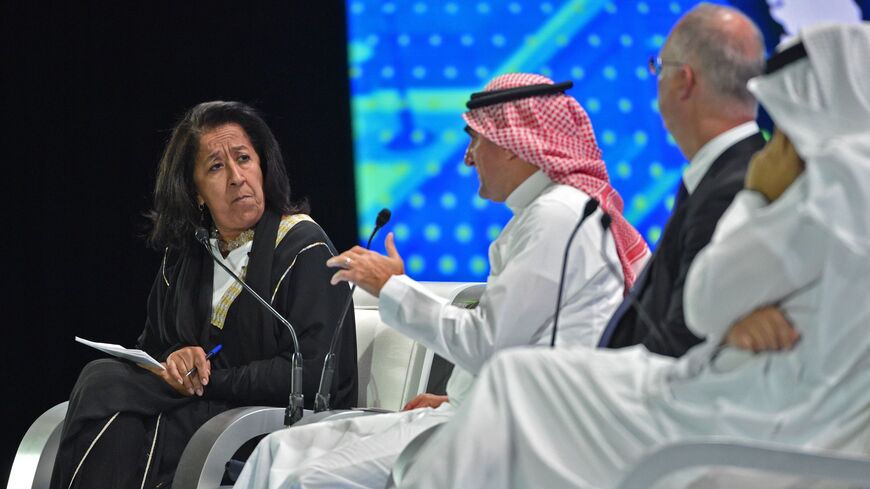DUBAI — Saudi Arabia and the United Arab Emirates dominated Forbes Middle East’s Top 100 Arab Family Businesses ranking in 2023 that was released Tuesday, which saw growing shifts in business practices and noted a need to establish more trust with consumers to grow.
Although Saudi Arabia and the UAE had the most companies listed with 33 and 29, respectively, Egypt’s Mansour Group sat in first place, the UAE’s Al-Futtaim Group sat in second and Saudi Arabia’s only female-led company, Olayan Financing Company, was third.
Here are the top 10 Arab family businesses on the list:
1 - Mansour Group (Egypt)
2 - Al-Futtaim Group (UAE)
3 - Olayan Financing Company (Saudi Arabia)
4 - Al Ghurair Investment (UAE)
5 - Majid Al Futtaim Holding (UAE)
6 - Abdul Latif Jameel (Saudi Arabia)
7 - Al Muhaidib Group (Saudi Arabia)
8 - SEDCO Holding (Saudi Arabia)
9 - Al Ghurair Group (UAE)
10 - Al-Faisal Holding (Qatar)
Company profile
The majority of the companies on Forbes Middle East’s list still hold very traditional business practices, especially as six of the entries were established in the 1800s.
Most of the Arab family businesses on the list started off as dealers, agents or distributors for international companies. The most successful ones evolved to include more services in their portfolios that allowed them to grow, and more recently, Forbes Middle East added, are seeking to capitalize on the region’s stock exchanges. More than 60% of the companies listed are major shareholders in a company listed on a regional stock exchange, it reported.
Progressive practices
Many of the entries still rely on traditional industries to conduct business and have not taken advantage of fast-growing technology or innovation sectors that promise to be the future of business.
Arab family businesses from the list also lack significant gender diversity. While most family businesses have female board members, the ranking had only five companies with women at the helm of their operations out of 100 firms.
Lubna Olayan, the CEO of the industrial, commercial and investment firm Olayan Financing Company, was the only woman CEO among the top 10 companies. Easa Saleh Al Gurg Group (ranked 32nd) from the UAE, Mohsin Haider Darwish (ranked 51st) from Oman, Oriental Weavers Group (ranked 52nd) from Egypt, and lastly, Diana Holding (ranked 92nd) from Morocco were the other female-led companies.
Sustainability
The family businesses on Forbes Middle East’s list “are still playing catch-up in terms of sustainability” but are changing their ways as second- and third-generation leadership take over, the publication said.
In regard to meeting Environmental, Social and Governance guidelines and implementing sustainability practices, Arab family businesses mostly concentrate on the social aspect of their businesses as opposed to the environmental aspect, reported Forbes Middle East.
Only 11% of family-owned businesses in the Arab world have set targets around their environmental impact, and only 38% regularly communicate how they will perform in their nonfinancial indicators, according to PwC’s Middle East Family Business Survey 2023, which was published in mid-July. Only 9% have an interest in reducing their organizations' carbon footprints in the next two years, it added.
The report stated that 74% of Middle East family businesses expect to grow in the next two years, and achieving this will depend on establishing trust with customers, employees and family members alike.
“But many family businesses in the Middle East are not taking the actions needed to build that trust,” reported PwC, which involves connecting with younger generations on more “eco-friendly” practices as consumers increasingly incorporate sustainability factors into their purchasing decisions.
Methodology
Forbes Middle East considered businesses owned or run by Arab families and sourced its information about them from stock exchanges and consulting firm reports, among other sources.
The rankings were decided based on measuring the size and asset value of the businesses, as well as activities including IPO listings, project launches and investments. The sector diversification of the companies and their performance in those sectors were all factors in the ranking, in addition to age and legacy, and the number of company employees.


f0eb.jpg)





